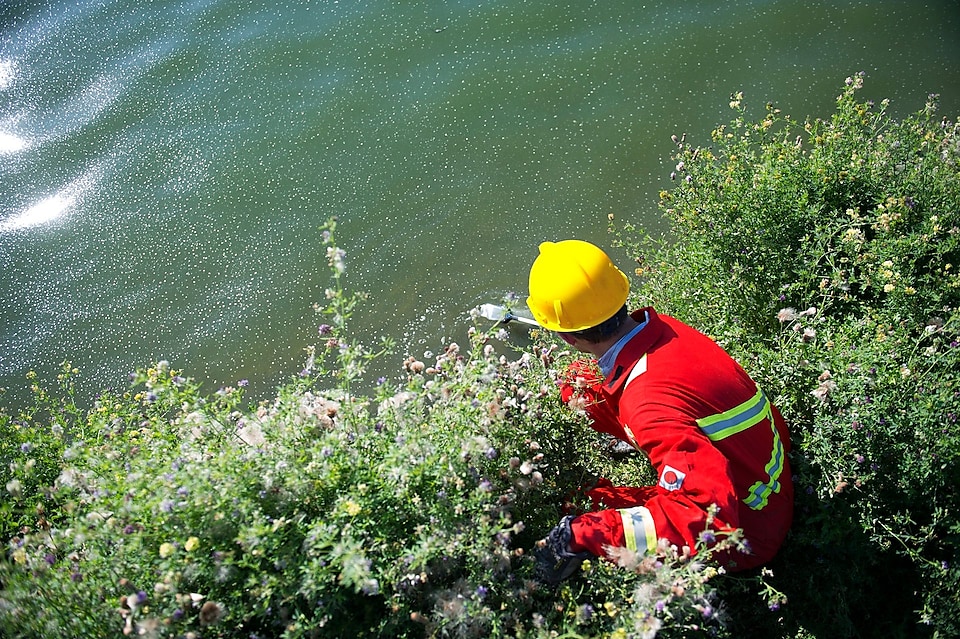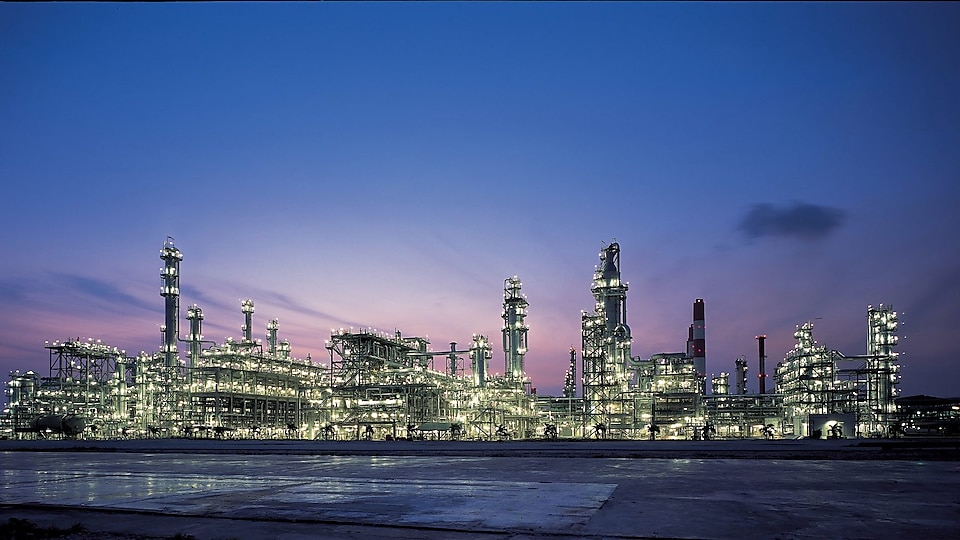
Plastic waste
Plastics offer vital benefits to society. Shell has seen how unmanaged plastic waste has become a serious issue. We want to play an active role in finding lasting solutions.
Medicines, detergents, textiles and plastics. Just a few of the thousands of finished products in which petrochemicals are a key ingredient – and which an increasing number of people around the world enjoy and need. Shell produces base chemicals (ethylene, propylene, and aromatics), which are the raw materials for these finished products.
Plastics provide important health, safety and sustainability benefits. They help to improve living standards, hygiene and nutrition around the world. They are used widely in healthcare, construction, transport, electronics, agriculture and sport. Plastics are often associated with disposable and throwaway packaging. But many products have different and long-term uses, as pipes, window frames, sports equipment and roofing, for example.
Most use fewer resources and have a lower-carbon footprint than the glass, paper and metal they have replaced. For instance, efficient plastic insulation and lightweight plastic parts in cars and planes save energy and avoid CO2 emissions. And plastics are integral in the construction of renewable energy, such as wind turbines and solar panels.
A waste issue
Shell is concerned about the global plastic waste issue. In some places, waste management infrastructure and traditional recycling don’t exist, or plastic waste is not managed appropriately. As a result, plastic waste can end up as litter.
Plastics don’t belong in our oceans, rivers or landscapes. They belong in our homes, hospitals, schools and businesses, delivering benefits to hundreds of millions of people around the world every day.
All of society – industry, governments and consumers need to work together to solve this.
We want to play an active role in finding lasting solutions to this challenge.
We are a leading member of the new Alliance To End Plastic Waste. This is an alliance of global companies including chemicals and plastic manufacturers, consumer goods companies and waste management companies, along with the World Business Council for Sustainable Development. It has committed $1.5 billion over the next five years to end plastic waste in the environment.

The Alliance has already started investments and projects, with four strategic pillars:
- Infrastructure: Catalyse investment in enhanced waste infrastructure to prevent plastic from reaching the environment.
- Innovation: Innovate new sustainable materials, designs, technologies and business models based on sound science and economics.
- Education: Engage and collaborate with governments, industry and consumers to drive effective solutions.
- Clean-up: Develop solutions to address and clean up areas of existing plastic waste in the environment.
Read more about the alliance on its website: www.endplasticwaste.org
Using plastic waste as a chemical feedstock
Shell is also exploring process technologies that could transform post-use plastic into useful liquids that could be used as a source of energy, as chemicals or as new products.
Shell is using a liquid feedstock made from plastic waste in its chemical plant in Norco, Louisiana, USA to make a range of chemicals. The liquid, supplied by Nexus Fuels, is made from hard-to-recycle plastic waste via a specialised heating technique called pyrolysis.
Our ambition is to use one million tonnes of plastic waste a year in our global chemicals plants by 2025. We will work with multiple companies who collect and transform plastic waste in order to scale this solution to industrial and profitable quantities across our chemicals plants in Asia, Europe and North America.
More information on this process can be found in the Video and Animation below.
Plastic Waste to Chemicals
Title: Shell Plastics Video
Description:
Video showing how Shell is using plastic waste to create a valuable base chemical for feedstock.
Shell is working with companies in the U.S. to source plastic waste and using a process called pyrolysis, is turning this waste into an oil that will be used to create a feedstock for future products.
Shell Plastic waste to video Video Transcript
[Background music plays]
Shell music bed from Creative Hub: Inspiring_Confident_A_Main_Track
[Video Sequence]
Combination of stock videos that support the recycling, plastic waste messaging as well as owned video footage of Norco Facility and Nexus Fuels facility.
[Text displays]
Shell.com
[Transcript]
If you think about it,
ideas can be a form of energy.
They can drive action. Spur results.
Even make the world a better place.
And Shell is part of such an idea:
Turning plastic waste into something valuable – raw materials for chemicals.
It takes innovation and commitment to bring that idea to life.
We have both.
We’re teaming up with innovative companies that collect and transform plastic waste to liquid.
We then use it to produce chemicals.
Chemicals used by our customers to make things like furniture, medical equipment, home appliances, and even smartphones.
It’s not just an idea on paper:
We are making this a reality today at our Norco chemical plant in the United States.
This process is unlocking the potential of plastic waste to create a circular value chain
And it’s our global ambition to use 1 million tonnes of recycled plastic waste in our chemical plants by 2025
Yes, ideas can be a form of energy.
And when we all work together, these ideas have the power to bring about significant change.
The Circular Process of Recycling Plastic Waste
Title: Project Yellow
Description: A short animation depicting the circular process of recycling plastic waste.
Duration: 1:10
[Animation]
A rotating circular band appears on screen which is divided in to segments with pointers directed to the right indicating a constantly moving circular process. There is text in the centre.
[On Screen text]
Shell is using a feedstock made from plastic waste to create chemicals.
[Animation]
Appearing clockwise in each segment of the circular band, an image appears:
Segment 1 – a car, a football, a plastic bottle, a plastic bag and a laptop.
Segment 2 – A refuse disposal truck.
Segment 3 – Image of a recycling plant.
Segment 4 – Image of a Shell chemicals plant.
Segment 5 – molecular structure with 3 branches coming off it, one to a t-shirt, one to a tyre and one to a plastic bottle.
[On screen text]
How does the process work?
[Animation]
The screen zooms in to the segment 1 image and the image changes to a ‘life’ scene of a house, car, people walking, a male on a bike, children playing football, a high rise building and an aeroplane in the sky.
[On screen text]
Plastics are used in the home, hospitals, electronics, construction, transport, agriculture and sport.
[Animation]
This image reverts back to the original composition of a car, a football, a plastic bottle, a plastic bag and a laptop.
The screen then zooms in to the image of the refuse truck which picks up a refuse bin, tips the contents in to the truck and then drives away.
[On screen text]
Plastic waste is collected and sorted.
[Animation]
The refuse truck drives towards the recycling plant image.
[On screen text]
The plastic waste is chemically recycled…..
[Animation]
The image of the recycling plant enlarges on screen as arrows move from left to right above the building.
[On screen text]
…using a special heating process called pyrolysis, turning it into a liquid.
[Animation]
The image of a Shell chemicals plant appears on screen.
[On screen text]
This liquid is used in a cracker at a Shell chemicals plant.
[Animation]
Multiple images of rotating molecular structures appear on screen.
[On screen text]
This produces a range of chemicals.
These are used by customers to make thousands of final products we see every day, including plastics.
[Animation]
Around one of the molecular structures appears images of a t-shirt, a laptop, a tyre, a can of paint and a paintbrush, a plastic bottle and a washing machine.
The screen zooms out to show the circular process image depicted at the beginning of the video.
This then fades out.
[On screen text]
Shell’s ambition is to use one million tonnes of plastic waste a year in its global chemical plants by 2025.
[Animation]
A closing screen shows the Shell pectin.
Initiatives at Shell
Shell’s individual lines of business are also active in reducing plastic waste. Examples include:
The Pennsylvania Chemicals Project is collaborating with local groups to encourage more plastics collection, recycling and education.
Shell’s retail business is helping its service stations and customers reduce, reuse and repurpose waste across its operations and supply chain, with initiatives from incentivising reusable cups and bags, to converting plastic waste into eco-bricks.
Shell Lubricants, our business that makes and sells engine and industrial oils, is reducing, reusing and recycling packaging across its supply chains and exploring different and more sustainable packaging solutions. These include new packaging formats or dispensing and refill solutions.
Shell has also introduced a range of activities to help its employees and contractors reduce, reuse and recycle at its offices around the world.
More in Environment
Air quality
We take steps to reduce airborne pollutants from our operations and help customers reduce their impact on air quality by using our products.
Fresh water
We manage our use of water carefully and invest in new approaches and technologies to use it more efficiently.
You may also be interested in
Shell Chemicals
Find out about Chemicals business of Shell.
Sustainability
Shell’s Net Carbon Footprint ambition is our plan to contribute to the global effort to tackle climate change and meet the goal of the Paris Agreement.





